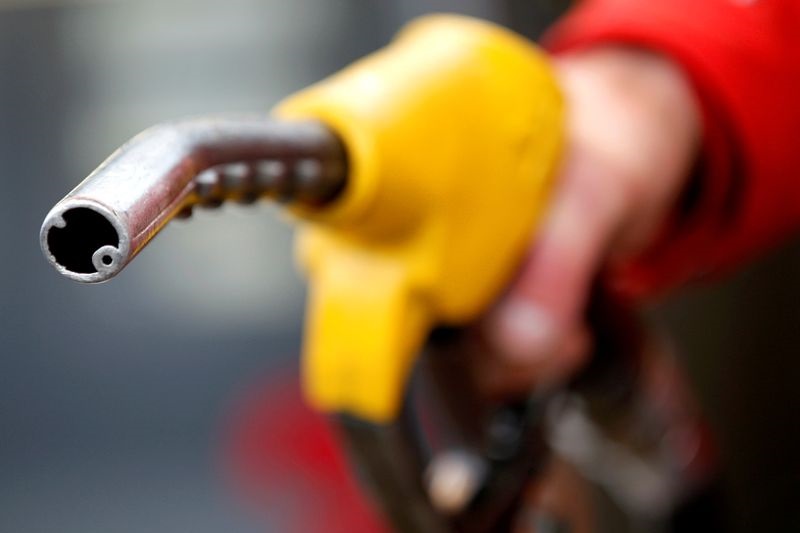Investing.com -- Oil prices were down more than 1% on Wednesday after data showed a surprise weekly build in U.S. crude stockpiles and as the government remained mum about refilling the national reserve contrary to media reports a day ago that a decision had been reached.
New York-traded West Texas Intermediate, or WTI, crude settled down $1.15, or 1.6%, at $72.56 per barrel, after non-stop gains in three previous sessions. Wednesday’s low itself was $72.05 for WTI. Week-to-date though, the U.S. crude benchmark was still up about 2% after three prior weeks of losses totaling 13%.
London-traded Brent crude settled down $1.03, or 1.3%, at $76.41. The session low for Brent was $75.07. Still, the global oil benchmark was up around 1% on the week, after three prior days of gains. That compared with the total loss of 12% that Brent had seen over three previous weeks.
The U.S. crude inventory balance rose by 2.951 million barrels during the week ended May 5, versus a previous drawdown of 1.280M for the week to April 28, the Energy Information Administration, or EIA, said.
Industry analysts tracked by Investing.com had forecast an inventory slide instead, of 0.917M barrels in the latest week.
The crude build reported by the EIA, however, came with a caveat: the release of 2.9M barrels from the Strategic Petroleum Reserve, without which the inventory balance might have been virtually unchanged from the previous week.
Crude releases from the U.S. reserve have been a challenge to oil bulls as the Biden administration sought to continuously moderate market optimism to prevent both oil and pump prices of fuel from rising too much to add to already high inflation.
Also, demand for fuels reported by the EIA for last week surpassed expectations, indicating greater consumption ahead of the typical summer surge in road, air and seaborne travel.
The EIA reported a gasoline inventory draw of 3.167M for the week ended May 5, versus forecasts for a drop of 1.233M barrels. In the previous week to April 28, there was a build of 1.743M barrels. Automotive fuel gasoline is the No. 1 U.S. fuel product.
On distillate stockpiles, the EIA cited a decline of 4.17M barrels versus expectations for a drop of just 0.808M barrels. In the prior week to April 28, distillates saw a deficit of 1.191M. Distillates, which are refined into heating oil, diesel for trucks, buses, trains and ships and fuel for jets, have been the strongest component of the U.S. petroleum complex in terms of demand.
Breaking down fuel consumption further, the EIA reported total supply of finished motor gasoline to the marketplace — i.e. fuel pumps — at 9.303M barrels daily, versus the year-ago level of 8.702M a day. Jet fuel, an important gauge at this time of the year when airlines are at their busiest in the run-up to summer travel, saw demand tick up to 1.917M barrels daily, versus year-ago levels of 1.441M per day.
Despite the relatively bright demand statistics, oil prices were depressed as traders focused on the net crude build of almost 3M barrels for all of last week.
Adding to the gloom of the market was the lack of any confirmation by the Biden administration that it was indeed ready to halt all future sales of oil from the SPR and refill the reserve, which now stands at just over 362M barrels — its lowest in almost 40 years. Various news reports had suggested on Tuesday that a decision had been made to refill the SPR, after Biden authorized the withdrawal of more than 200M barrels from the reserve since late 2021.
“Today’s market reaction reflects disappointment on two fronts: The crude build reported by the EIA for last week as well as the lack of any government confirmation that the refill of the SPR is on,” said John Kilduff, partner at New York energy hedge fund Again Capital. “Between the two, I think the disappointment over the SPR was bigger, given that it involves some 200M barrels.”
